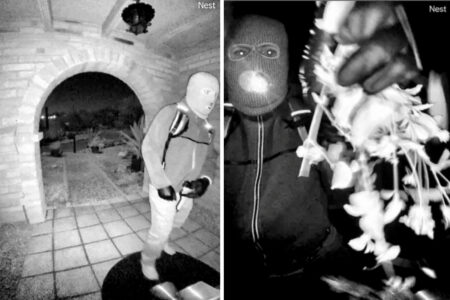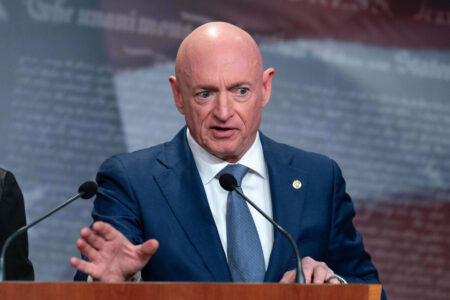‘Extreme Makeover’ home creates tax burden for K.C. family
Kansas City, Mo. ? Having the television show “Extreme Makeover: Home Edition” build and furnish a new home for them made some things easier for members of the Jacobo family of Kansas City.
But the financial pressures facing Jesus and Michelle Jacobo and their extended family of 12 didn’t disappear when they moved into the new home.
The Jacobos’ property taxes will double, utility and insurance costs on the new home will increase – and they still owe $121,000 on the mortgage of the old home.
And, while the television show’s producers disagree, the Internal Revenue Service and H&R Block Inc. say families who benefit from “Extreme Makeover” are subject to income taxes on increased home equity and the furnishings.
Those involved in helping to build the house have started a fund to help the Jacobos afford the house and furnishings, which viewers will see them receive when the episode airs May 13.
“We don’t want to see the incredible blessings and outpouring provided in the short term become a financial burden for the family in the long run,” said Rep. Jeff Grisamore, R-Lee’s Summit, who is helping fund organizers.
The Jacobo family cannot grant interviews because of a confidentiality agreement with ABC.
Jesus Jacobo, 39, builds cranes and Michelle Jacobo, 38, cares for their four children and five nieces and nephews. A grandparent also lives with them.
On March 18, the family was given a home five times the size of the 912-square-foot home in which it had lived.
“They’re still excited; they love the home,” said Kevin Green, a Parkville homebuilder who coordinated local volunteers.
Green said he had raised about $50,000 to help the family with remaining expenses, about $71,000 short of what he needs.
The Jacobos paid $1,156 in property taxes last year on a home the county valued at $95,600. Clay County assessors have appraised the new home at $200,000, said Assessor Cathy Rinehart, meaning the property tax bill could be around $2,500.
“Extreme Makeover: Home Edition” is produced for ABC by Endermol USA. The show’s producer said ABC officials think the increased value of the new home and furnishings are not taxable income.
The show considers those items rent paid to use the property to produce an episode. Under federal tax codes, a homeowner who rents out a house for less than 15 days does not have to pay tax on that income.
But the IRS considers those items prizes or awards that are taxable income, according to a 2005 letter written by Robert M. Brown, associate chief counsel. IRS officials referred all questions to a copy of the letter on the agency’s Web site.
H&R Block also would advise clients that all equity, furnishings and vehicles received on the show are taxable income, said Jackie Perlman, the company’s senior tax research coordinator.
That could mean a one-time tax bill of $20,000 or more for the Jacobos, if they paid in the lowest 10 percent tax bracket.
Although three new Ford vehicles were filmed in front of cheering crowds when the Jacobos were given the home, Green said the family will instead choose something from Ford that is equal in value that fits its needs.
Conrad Ricketts, co-creator and executive producer of the show, said families agree that they are responsible for property taxes. Managing local taxes and costs is the responsibility of the family and those who want to help, he said.
In the four years that the show has built houses, no families have sold or lost their homes, he said. The recipients are counseled on finances, and a producer for the show keeps in touch with them.
“We simply don’t build the families these houses and walk away,” Ricketts said.







